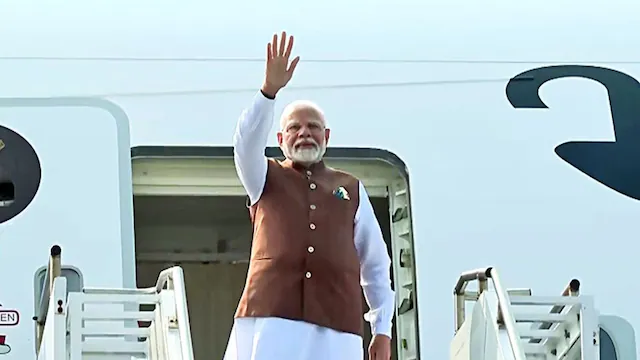No place for equality in Islam
- Shabari Seva Staff
- Aug 25, 2021
- 3 min read

Throughout the world Islam preaches about the lessons of unity, equality and moderation, service of humankind, humanity, brotherhood, and good manners of speech. The catch is Islam gives all these rights to non-Muslims only if they live under the Sharia rule. In other words, non-Muslims can enjoy these rights and freedoms only as second-class citizens under an Islamic rule, a fundamental Quranic directive based on which Pakistan legally prohibits non-Muslim Pakistani citizens from becoming the head of the state.
For a long period of time, we have heard many cooked stories of upper caste Hindus oppressing Dalits but such stories most of the time are nothing but agenda driven narratives put forward by leftists to break India. Leftists have always tried to show Dalit-Muslim cocktail the solution to so-called upper class Hindu hegemony. Leftists paint this as an ideal situation where Dalit and Muslims will have equal rights in “true sense” which is otherwise obliterated by upper caste Hindus. However, those who promote this deadly cocktail start concealing their faces whenever a crime takes place wherein victim is Dalit and the perpetrator is Muslim.
For last many years, a lie is being propagated by leftists that there is equality in Islam and there is absence of caste system in Muslims which is anything but true. Our History is filled with many examples helping us to learn from our past mistakes. One such example is of Jogendra Nath Mandal who was the foremost figure of Dalit-Muslim unity and was one of the few eminent Dalit politicains who echoed for a Dalit-Muslim cohesion as an alternative to upper caste Hindu hegemony. He was made the first Law and Labour Minister in Pakistan. He believed in a utopia wherein Dalits and Muslims would live together in peace. However, his utopia broke into pieces sooner than he had ever imagined.
On October 9, 1950, JN Mandal sent his resignation to the then Pakistan Prime Minister Liaquat Ali Khan, writing how the sense of utter frustration at failing at his life-long mission to uplift the backward Hindu masses of East Bengal had led him to feel compelled to tender his resignation from the cabinet.
According to Mandal, his main aim to join hands with the Muslim league was the economic interests of Scheduled Castes in Pakistan and secondly, that the Scheduled Castes and Muslims were both educationally backward. He thought that the alliance would help both the group prosper together but his theory failed. Mandal was the only Scheduled Caste member returned to the Federation ticket. He was stunned to see Hindus including Scheduled Castes being killed and converted to Islam in October 1946. Hindu women were raped and abducted. Members of his community also suffered the loss of life and property.
Highlighting the communal riots, Mandal wrote that the terrible sufferings of Hindus had overwhelmed him with grief. Despite this, he continued the policy of co-operation with the Muslim League with the hope that the perpetrators were only fringe elements and the Muslim League was devoted towards upliftment of Muslims and Dalit simultaneously. However, his notion of Dalit-Muslim unity kept breaking into pieces with every anti-Hindu riot.
“For the sake of truth, I must admit that I had always considered the demand of Pakistan by the Muslim League as a bargaining counter. Although I honestly felt that in the context India as a whole Muslims had legitimate cause for grievance against upper-class Hindu chauvinism, I held the view very strongly indeed that the creation of Pakistan would never solve the communal problem,” Mandal lends his support for the country's partition.
He pointed out how the then Chief Minister of Bengal Suhrawardy had promised safety to the Scheduled Caste of Bengal from the anticipated dangerous result of partition. He wrote that the Chief Minister of Bengal had even issued a statement declaring that none of the rights and privileges hitherto enjoyed by the Scheduled Caste people would be curtailed after partition and that they would not only continue to enjoy the existing rights and privileges but also receive additional advantages.
However, the riots and pogrom that he witnessed with his eyes shook him and made him regret his decision of supporting an over the top utopian state of Dalit-Muslim unity.




Comments